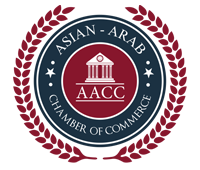Business Environment
Business Etiquette in Chile
Many Chilean business people do have at least a basic command of the English language. This is especially the case in bigger companies which operate on an international level. However, managers and employees of medium-sized and small companies often don’t speak English at all. This is why learning Spanish before your move to Chile is essential. It will also significantly improve the relationship to your business partners.
But before meeting with prospective business partners, you should make sure to establish a certain level of trust. At the same time, hierarchies and honor play an important role in Chile’s business world. Make sure to never voice your criticism openly or embarrass anyone in public. It is important to always address your business partners with their last name and their title. Always use the formal “Usted” (you), especially when speaking to Chileans in managing positions.
Taxation in Chile
Expats living in Chile, who are considered residents and have a domicile in the country, have to pay income tax. This is the case no matter if they receive their pay check from domestic or foreign sources. Non-residents, on the other hand, are only taxed on their Chilean income. This is the case when you receive income from a company or a business deal undertaken in Chile. Throughout the first three years of living in Chile, expats are only taxed on their Chilean income. The duration of this period can be extended in some cases.
In general, Chilean income tax follows three basic principles:
- Income taxes are paid by individuals or on behalf of individuals by the company they work for.
- Taxes are based on all incomes received or accrued by a company during a tax period.
- Business-owners are only taxed on profits withdrawn from their company.
The local tax, which is placed on goods and services, currently amounts to 19%. You may be subject to additional taxes while working in Chile. Contact the Chilean tax authorities for more information. Make sure to also talk to tax authorities in your home country to figure out if you are subject to any double taxation agreements.
Social Security in Chile
Chile was one of the first countries in the Americas to implement a state-sponsored social security system, following pressure from different worker organizations. Different changes and reforms led to the existence of 35 different pension funds and about 150 social security schemes in the early 1970s. Eventually, the system was privatized. The amount of individual pensions is based on the contributions made. In general, pension is not allowed to fall below 70 percent of your last month’s salary.
You are free to choose your pension-fund company yourself as you see fit. The age of retirement in Chile is 65 for men and 60 for women. If you have enough funds for a pension which is equal to about 110% of the minimum pension, then you have the option of retiring early. Because the change from the old to the new system was on a voluntary basis, many Chilean retirees are still part of the state-run social security system, called the Institute of Pension Fund Normalization (Instituto de Normalización Previsional – INP).










